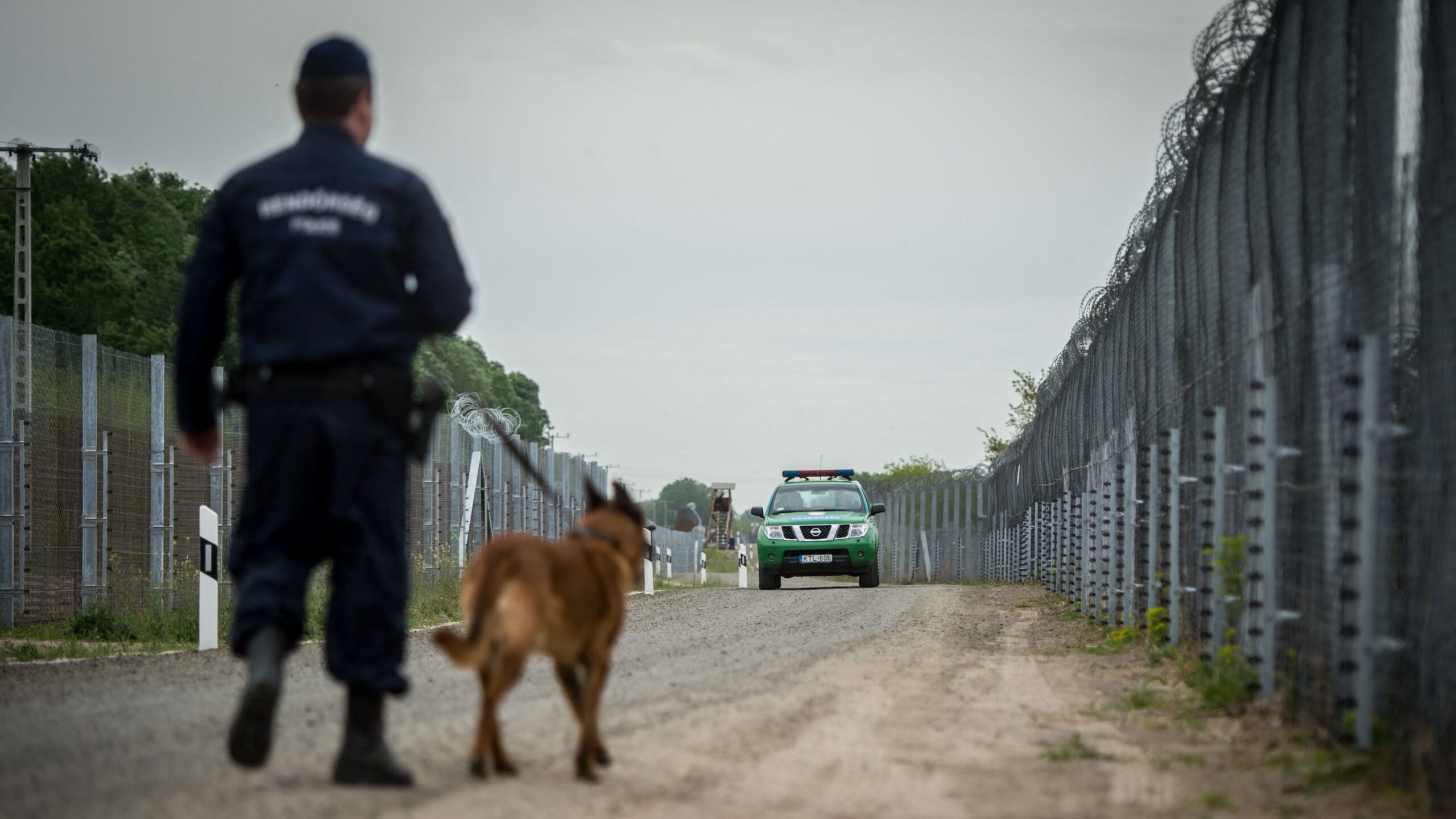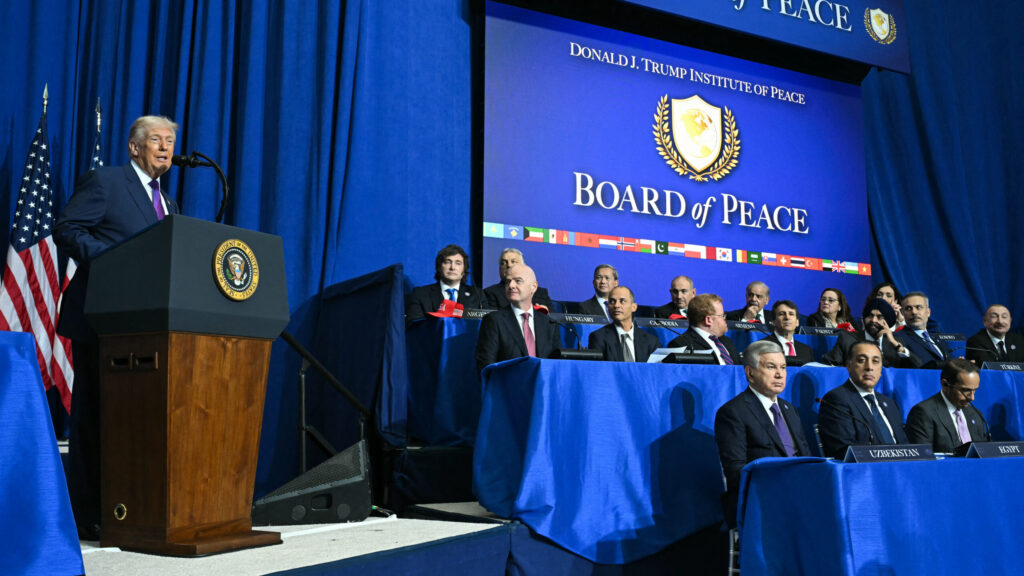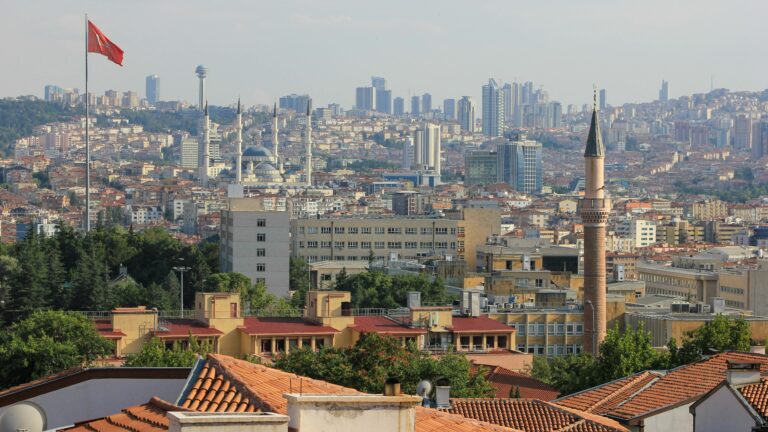After attending my first conservative conference in Budapest, I began to wonder if I was in fact a hand-wringing liberal.
As I journeyed to Szeged for the MCC–MRI Summit on the 10th Anniversary of the European Migration Crisis conference—co‑organized by Mathias Corvinus Collegium (MCC) and the Migration Research Institute (MRI), including a visit to the Serbian border—it therefore gave me comfort to think that very little will provoke more revulsion in someone of a progressive bent than announcing you are to visit a border fence.
But doubts still lingered. In the face of the cold, hard steel, would I go soft?
Arriving at the border, our party was met by the head of alien operations for Csongrád–Csanád county, László Papp. What we saw was a high fence. What we heard was a low farce. In 2015, when the illegal migrants were in full flow, the first barrier erected was no more than the sort of thing you might put up to keep foxes away from chickens.
Accordingly, it had to be strengthened. €2 billion later came some motion detection cables, some night vision thermo cameras, and up went the height of the fence. Under tried the migrants, digging into the sandy foundations. Further down went the fence. Up went the aluminium ladders.
The enterprising people smugglers established two rates. Four ladders would get a migrant up and over safely; those on lower incomes could opt for the two-ladder service, where getting down was a test of whether their legs could withstand a four-metre jump.
The Serbian ladder market boomed, quipped László.
When the police patrols zoom along the gully between the fence and a second one behind to intercept anyone who has made a breach, they are pelted with rocks. We were informed that Hungarian law is strict in requiring officers to be threatened by lethal force in order to draw arms, so in practice the invaders are occasionally sprayed with water rather than bullets. At this, the Americans in our party stood agape.
‘It would be no logistical trouble for the British government to stop the inflatable armada coming across the English channel’
The visit underlined that the battle against mass migration is not lost at the frontline. Hundreds of attempts to enter Hungary are still made every week, of which 70 per cent are prevented from reaching the second fence, and the majority of the remainder are stopped inland. We were also shown a command centre in the town of Mórahalom, which revealed that Hungary’s success is borne of a fairly rudimentary system (unlike the infrastructure US tech-defence companies are producing) of patrols and cameras monitored from small offices by gentle late middle-aged men who could easily be cadets in Dad’s Army. Likewise, it would be no logistical trouble for the British government to stop the inflatable armada coming across the English channel. The world has seen how quickly the US secured its southern border following the re-election of Donald Trump.
The battle is instead being lost in European capitals. Not simply because the reward for Hungary doing the dirty work on behalf of other EU member states is daily fines from the ECJ. There is a lack of political will to change legal frameworks. Why has this been the case, even as an increasing number of people recognize that the scale of migration is intolerable? Fundamentally, the battle is lost because those who desire a drastic tightening of border controls are never able to successfully defend themselves against the charge of lacking compassion.
And amongst the emerging right across Europe, some of whom I came into contact with for the first time at this conference and at the Danube Institute’s Geopolitical Summit the preceding week, by trying to burnish their credentials as ethnonationalist warriors in a civilisational battle, I fear they are only compounding their failure.
The problem with ethnonationalists is the source of their motivation. For as Bertrand Russell observed that Marxism produced disaster because it was not inspired by kindly feeling—‘Marx pretended that he wanted the happiness of the proletariat; what he really wanted was the unhappiness of the bourgeois’—the ethnonationalist appears inspired more by dislike of foreigners than by the love of his tribe. Inasmuch as the number of people being motivated by resentment will rarely approach a majority in a democratic nation, to ignore the sentiments of polite society is political folly.
‘There is a lack of political will to change legal frameworks’
Perhaps the British are more allergic to unkindly feelings in politics than others. The allergy is certainly hereditary. Ronald Blythe’s essay ‘The Salutary Tale of Jix’ on Sir William Joynson-Hicks, whose activities as Home Secretary in the 1920s make Enoch Powell look like Princess Diana, describes Jix’s campaign against the 272,000 registered aliens in Britain as ‘shock[ing] a country which had always prided itself on its hospitality towards the oppressed of all nations.’ Of course one can point out that in the present day case the people breaking into countries are obviously by no means oppressed, but the public tend not to be interested in the distinction if one is simultaneously frothing at the mouth when talking of them.
For this reason I have been dismayed to hear delegates of the European right regard the recent activities of Tommy Robinson and the Unite the Kingdom march as an indication that things can only get better in Britain. This merely belies a wholesale misunderstanding of the nature—both in substance and of tone—of conservatism there that has been filtered through the sensationalist prism of X. The historian (and authorized biographer of Enoch Powell) Simon Heffer struck at its heart when in a recent GB News interview he said regarding Robinson that he had ‘never met him but I wouldn’t want to have him around for dinner’. He also reasonably suggested that had Robinson not been associated with the march, it may have attracted another couple of hundred thousand people.
We were fortunate then at the two conferences to have as the sole speaker from Britain Guy Dampier of the Prosperity Institute—a man so patently decent that it would give you pleasure if he came around to dinner and returned home with your daughter or went upstairs with your wife. By articulating without any spite and with plenty of humour the astonishing facts of migration—for example that more people arrived in Britain in the years 2021–2024 than in the years 1066–1997—and the necessary measures to reduce it, he reminded Conservatives of the wet variety that a generous spirit does not preclude firm action.
What then of the compassion of the open borders brigade? It ought to be a more profitable strategy to attack it head on. Beyond the fence on the Serbian side in the Horgos forest, the AK-47-wielding people smugglers have established military-style camps for the migrants; is it compassionate to support a multi-billion-dollar criminal enterprise? Many illegal migrants who successfully break through are forced to continue paying the smugglers under duress; is it compassionate to support a modern form of indentured labour? The most humane outcome would be a 0 per cent success rate of entry. 10 per cent of the Hungarian prison population are people smugglers. So please, less talk of civilizational battles. The facts are radicalizing enough.
Related articles:







